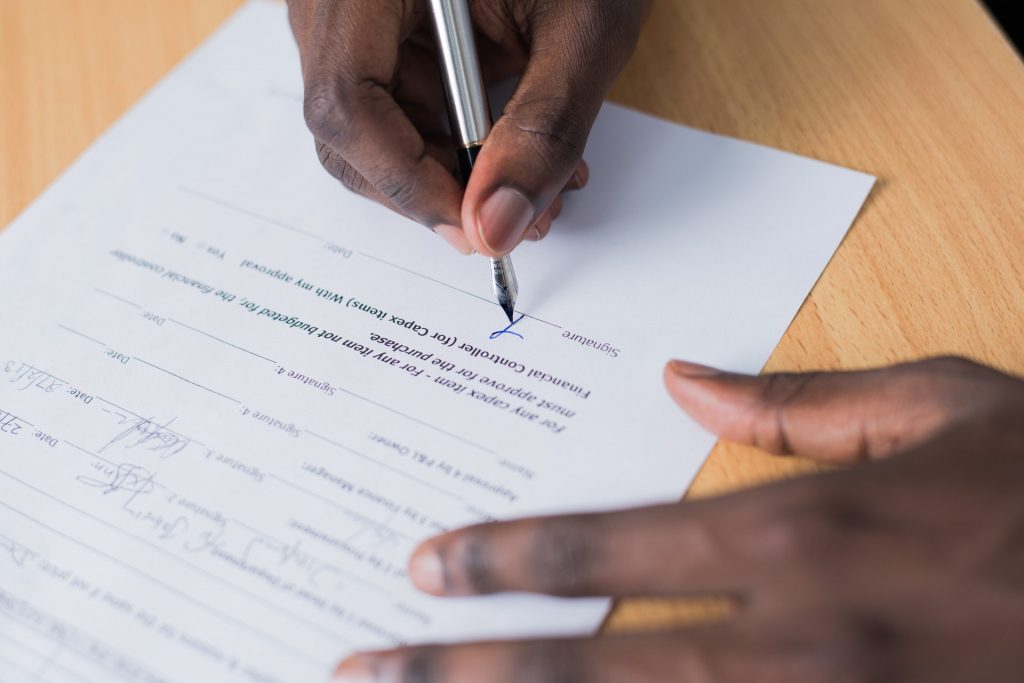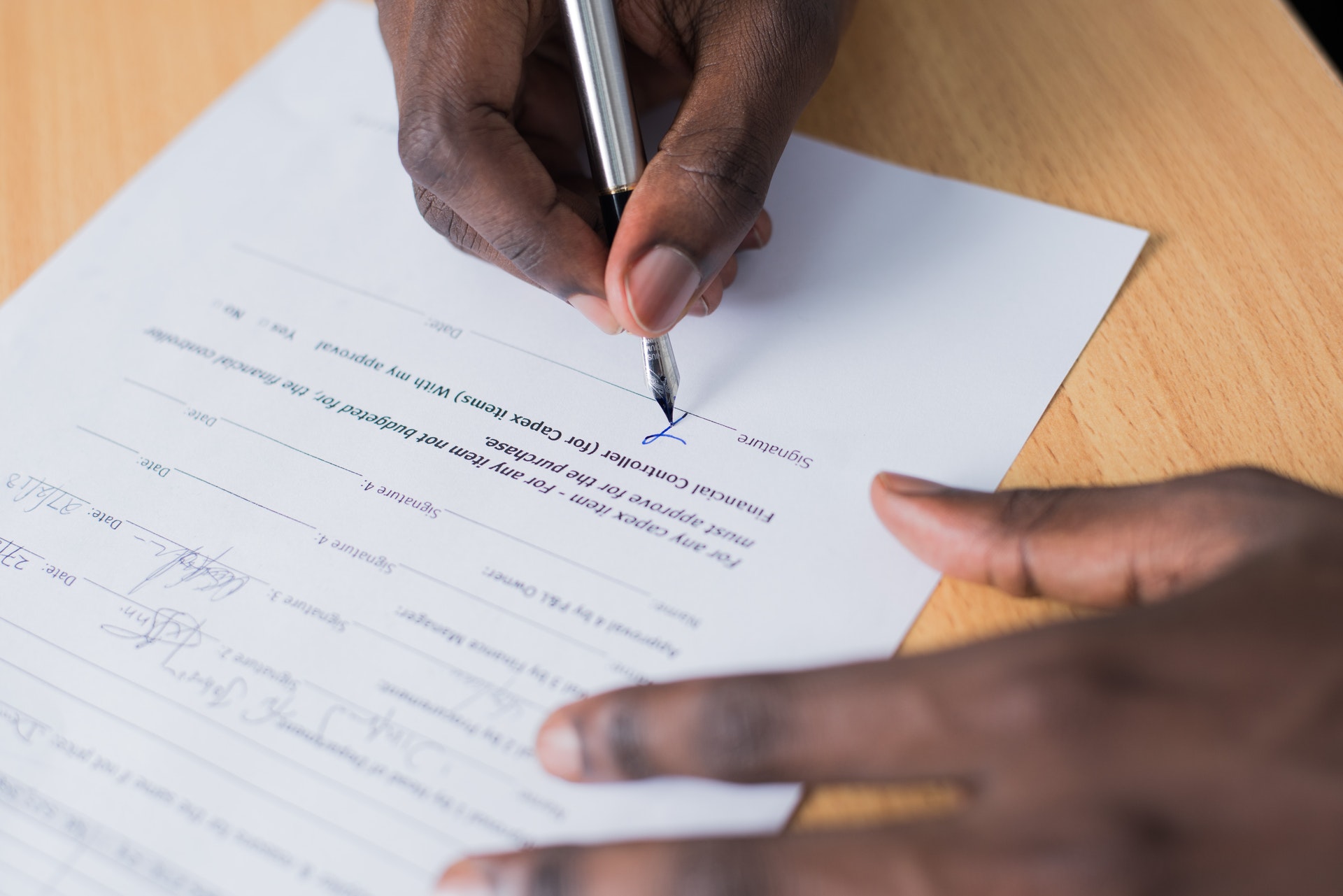After months of interviewing local real estate agents, making long-overdue repairs, and waiting for the best market conditions to sell, you've finally listed your property and set your asking price and the offers have started pouring in. This is the time when many sellers feel compelled to quickly accept the first or second offer they receive, as they might want to cut costs on commission fees and speed up the process to move away as quickly as possible.Thank you for reading this post, don't forget to subscribe!
But while waiting for the perfect offer to come through can be daunting and more expensive, especially after taking months for listing in the first place, accepting a sub-par offer can be even more costly and frustrating! As a general rule of thumb, you should apply the same degree of caution when vetting potential home buyers and offers as you would when selecting your real estate agent and time frame to sell! Here's all you have to keep in mind when accepting an offer on a house, including how to negotiate with potential buyers and how to draft an initial agreement in line with your goals.
What to consider when evaluating an offer
As you start receiving offers, it might be tempting to simply accept the highest offer without considering other important factors, such as buyers' trustworthiness and time limit considerations. So, what should you keep in mind when picking between offers and considering each buyer? Here are three tips that might help you make a better decision.
The price is not always right!
“The higher the price, the better the offer”, right?
While there is some truth to this statement, it can be easy to let yourself get carried away by this popular misconception. In fact, the price you're offered is not always the determining factor for whether you should accept an offer or not, largely because the initial offer is usually not final!
There are a number of terms and conditions that may influence the final outcome of a price further down the line, so you should always make sure to ask the prospective buyer whether they'll also be covering expenses like closing costs and survey coverage. In most cases, buyers will be expected to pay between 1-3% of other closing expenses besides part of the listing agent's commissions. They might also be responsible for paying survey coverage, an additional title insurance policy protecting the buyer from paperwork errors.
Depending on how you negotiate these costs, you might want to opt for a lower price offer over a higher offer with little to no help in regards to closing expenses. You're likely going to need some help from your real estate agent to crunch the numbers and pick the best offer, and you can definitely trust our professionals to help you evaluate every proposal thoroughly!
The buyer might not have secure financing
Another important factor to consider is whether you can fully trust your buyer and be confident that their finances will cover all expected responsibilities throughout the sale process. It might be easy to disregard a buyer's background when faced with an appealing offer on your home, but if you fail to vet their creditworthiness beforehand, you might have some harsh surprises down the line!
So, before you accept an offer, you should make sure they are financially stable and truly able to see the process through closing.There are several ways you can vet their situation before you accept their offer: You can start by simply looking at the deposit they are offering the down payment, as anything above 20% is considered not only ideal but a good sign of financial stability and trustworthiness. Needless to say, the higher the down payment, the better!
Some sellers might also want to consider individual cash buyers as a good option, as an all-cash offer often makes for a quicker and much less risky closing journey, even if it means accepting a lower price. You should also look for pre-approved buyers, meaning buyers whose credit and income have already been reviewed by a qualified lender to confirm they'll be able to purchase your home without any issues.An earnest money deposit will also help you distinguish serious offers from the not-so-serious, as this is a deposit the buyer cannot get back if they suddenly decide to back out of the deal for whatever reason.
As a final word of advice, remember to keep an eye out for contingencies. The fewer contingencies buyers include in their offer and initial agreement, the greater likelihood you'll be able to proceed with the sale smoothly! The most common contingencies include home sale contingency (contingent on the buyer selling their current home), inspection contingency (revolving around the finding of major issues during an inspection), appraisal contingency (taking effect when your property is appraised for less than what is being offered), and financing contingency. This last point is particularly important for determining the financial stability of your prospective buyer, as financing contingency protects the buyer by allowing them to back out if they cannot obtain a mortgage.
The timing might not fit your needs
Finally, you should pay special attention to whether the offer you're considering fits your preferred timeline for closing, as the closing date might be too soon or too late for your personal and financial needs. You should always double-check if the buyer's offer comes with a set expiration date you'll have to adhere to, so you can make sure you'll be able to negotiate your terms before it expires.
You should also ask buyers whether they can be flexible with the timing of the sale, so that if you need to stay in the property for longer or need to fast-track the process to move out as soon as possible, you can easily do so without compromising on the sale's terms.
Finally, make sure you know what the proposed closing date is and whether it can be changed, so you can turn your focus solely to the terms and price of the offer with complete peace of mind.
How to accept an offer on your current house
Once you know what offers you should pay closer attention to and what potential buyers you should steer clear of instead, you can go ahead and accept the offer that ticks all the boxes. So, how can you effectively negotiate with your chosen buyer and protect your rights as a seller before you close the deal?
And what happens when you're done accepting an offer on a house? Here's what to expect and a few tips on how to make the whole process smoother from the get-go.
Negotiate your price carefully
The initial price offered for a house is rarely ever final, and you might also not like all the terms that your best offer comes with (for example, an offer contingent on the mortgage lender accepting the buyer's application or an appraisal contingency). While you might not be able to change all the terms you're not as comfortable with, negotiating each point thoroughly is bound to make the offer a lot more appealing.
We can't all be master negotiators, but remaining friendly and empathetic to the needs of your buyer will go a long way in getting the results you want. That's why our agents take the ethical responsibility of fairly negotiating contractual terms very seriously. We believe it's our job to find a win-win agreement that is beneficial for both the seller and the buyer, and even if you are having trouble choosing between multiple offers, we will guarantee a thorough and objective assessment of each of them to help you make the right choice!
Make sure to have an agreement and deposit
An effective agreement is a legal arrangement between a potential buyer and the property’s seller, and while laws may vary from state to state, you should always ensure you have a legally binding agreement before proceeding with an offer. This initial agreement and an additional deposit will be held in the closing agent’s escrow account pending the fulfillment of conditions or contingencies in the effective agreement. We recommend you keep written records of every communication regarding the sale, so you can avoid misunderstandings and streamline the process even further.
This includes keeping transcriptions of all verbal agreements, including counter-offers and addendums, so you can convert them to written agreements to be signed by both parties. We also recommend keeping the majority of communication on email or text to make transcription easier. If drafting up paperwork is not your forte, there's no need to worry. We will assist you in drafting all the necessary documents for your sale and make sure that you have copies of everything for easy consultation!
Set up a clear schedule to stick to
Whether you are choosing an offer or simply want to set up boundaries during your initial negotiations, you should make sure you understand both the legal timeline you need to follow before closing and the preferred timeline of your buyer, so you can compare the two with your needs. Once you have accepted an offer, for example, you'll have to take into account the timeline for opening an escrow account and transferring the earnest money deposit fund, the time it takes for the lender to process all documents related to the buyer's mortgage, and how long it will take to have your home inspected.
On top of that, you'll also have to consider and set up a timeline in writing for when you'll carry out additional repairs and appraisals, plus the date when you will transfer all utilities and, if needed, the date your buyer will take out a home insurance policy. Meeting the requirements on time not only ensures a smoother flow of negotiations but also ensures that each party involved is not in breach of their agreements. To make the process easier, our agents will make sure to keep you constantly updated. You will always be prepared for the next step!
All you need for thriving in a seller's market
Accepting an offer on a house is often considered the last hurdle to get through before you can move on and enjoy your sale profits, but after all the documents are signed, you'll still have to deal with the dreaded home inspection and appraisal process — one wrong move could jeopardize the sale altogether! To avoid disappointment and make sure everything proceeds smoothly all the way up to the closing date, you should reach out to a listing agent who truly knows how to navigate all the risks involved with selling a property. No matter where you're based or what your preferred timeline is, our agents have the expertise to deal with any situation and get your home sold quickly and efficiently, so get in touch today to find the perfect match!









